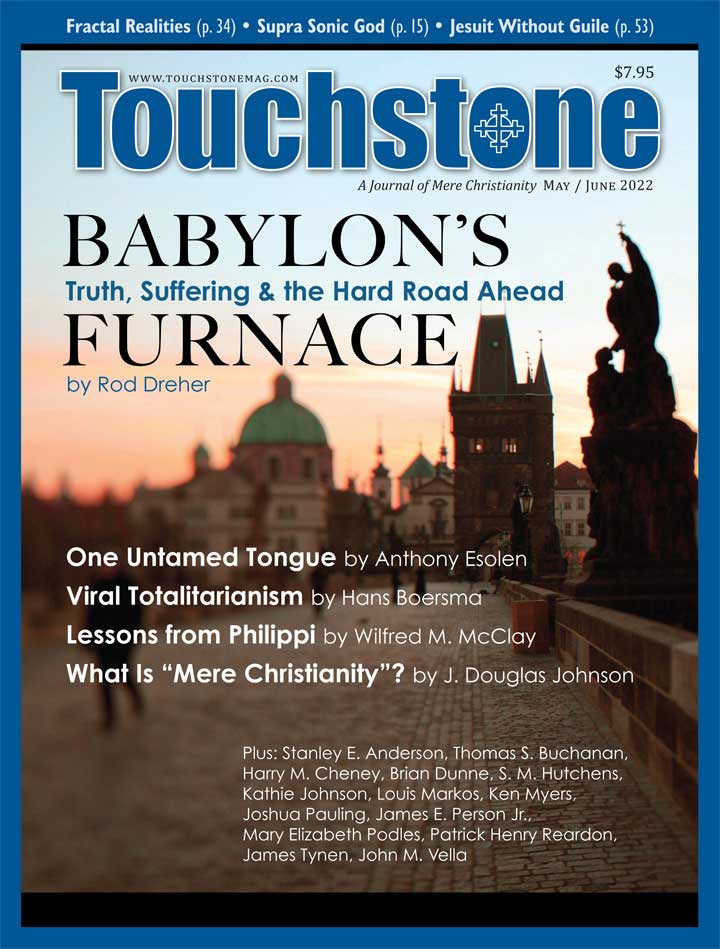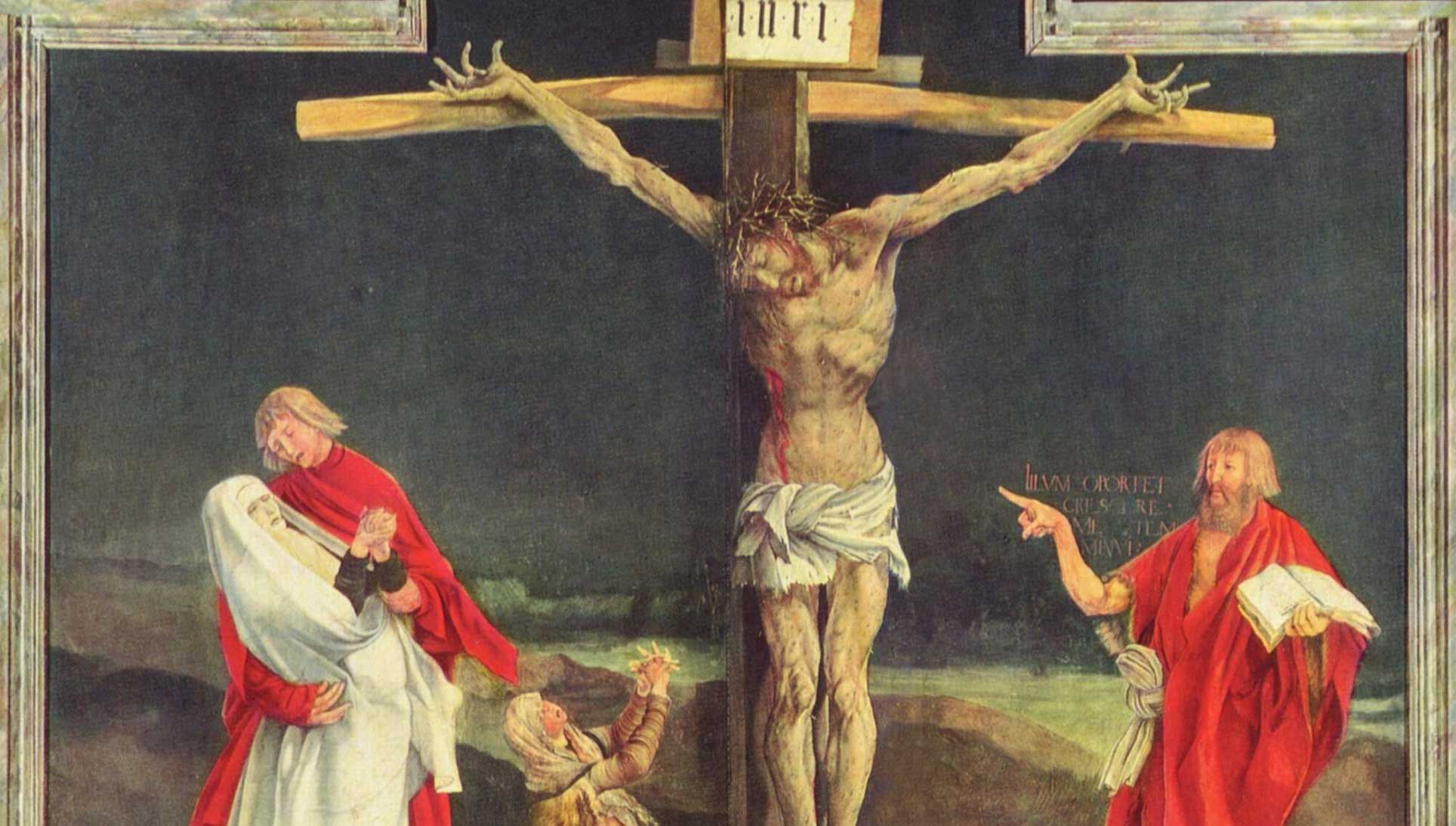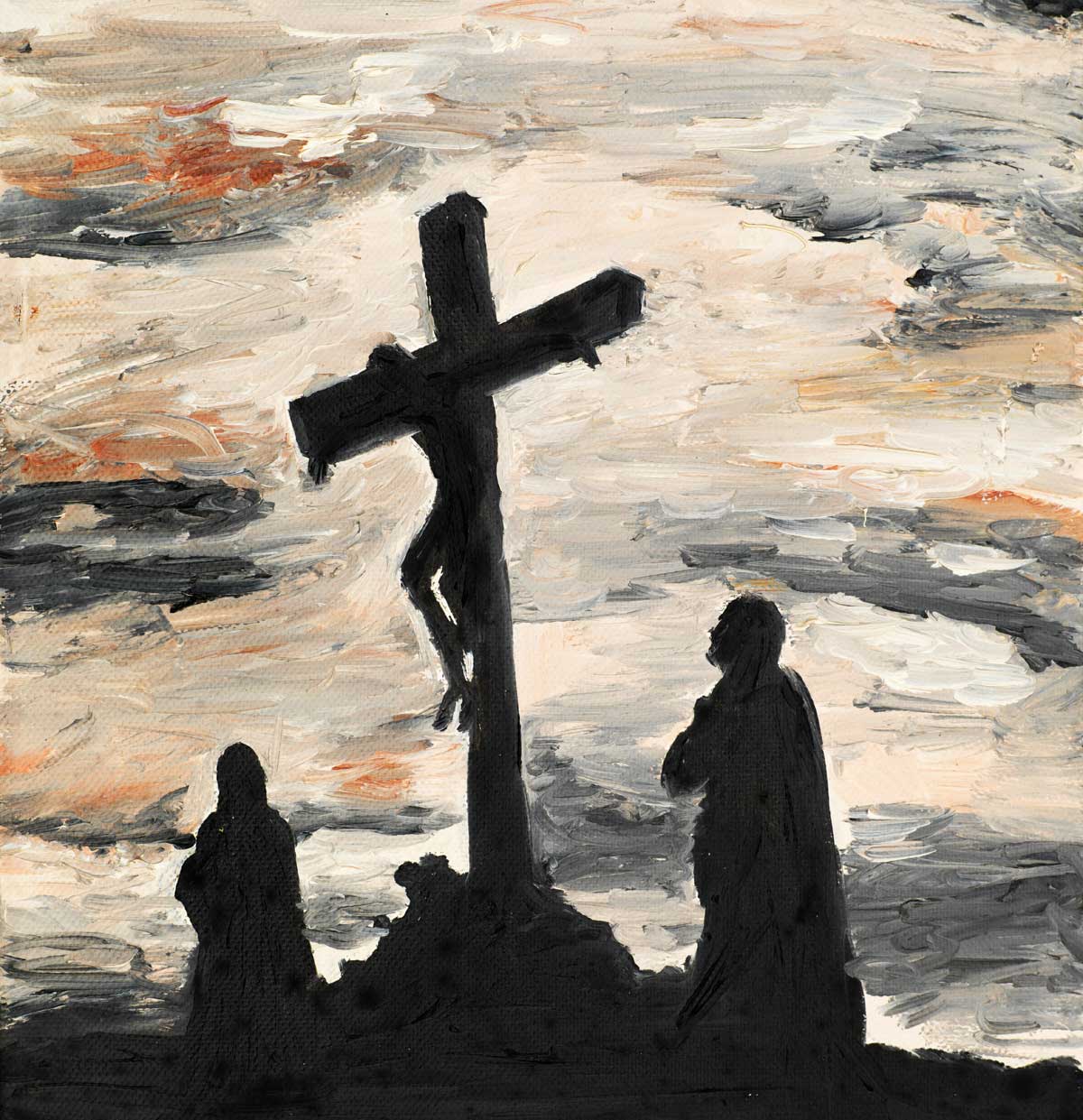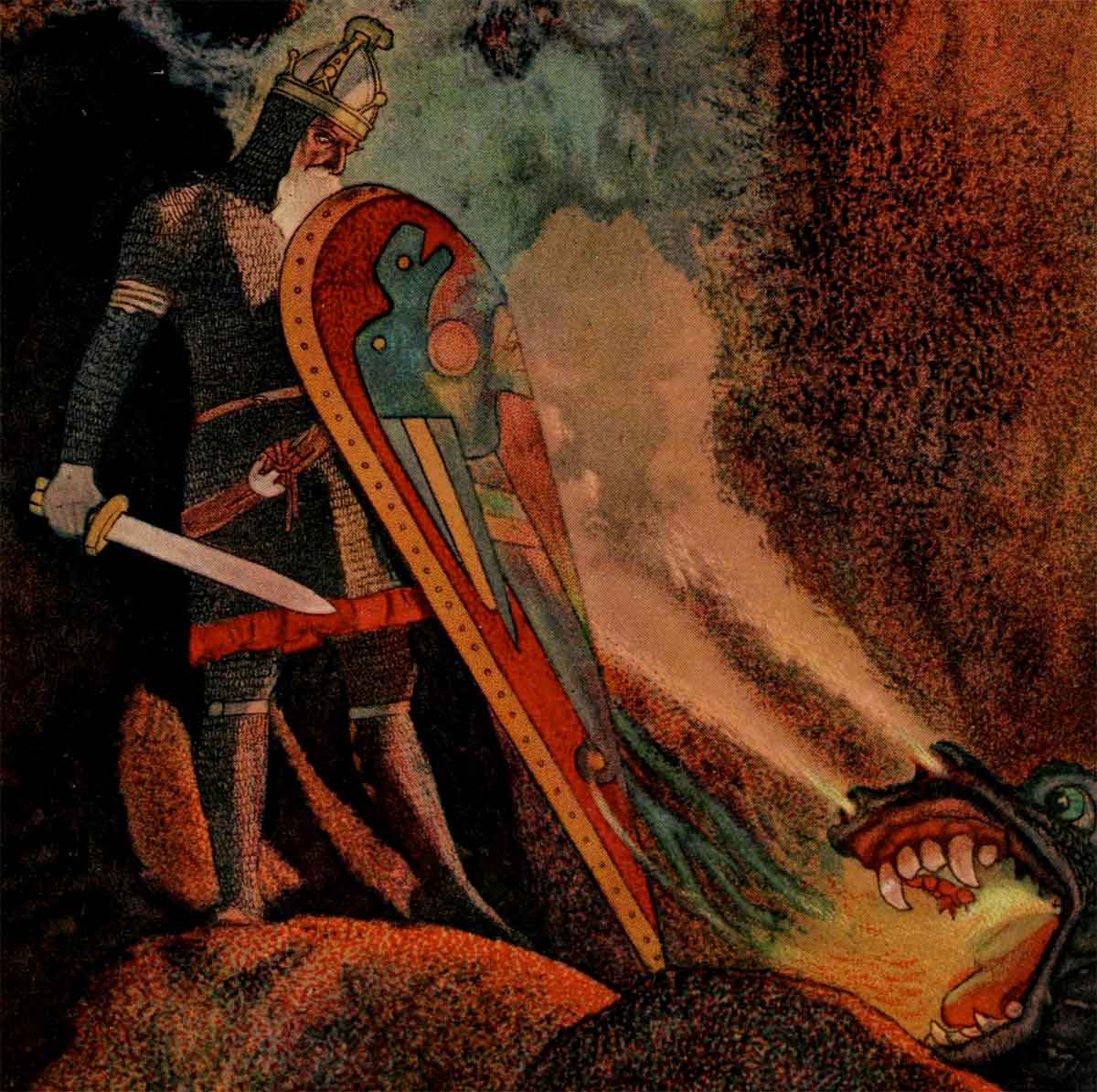What Is "Mere Christianity"?
Quod Ubique, Semper, et Ab Omnibus
by J. Douglas Johnson
Most readers of this journal know that our subtitle, A Journal of Mere Christianity, refers to C. S. Lewis's book of the same name. It is worthwhile, from time to time, to review what Lewis meant by this phrase. The answer is not as straightforward as it might seem.
The most common misinterpretation of what Lewis meant goes something like this: "Mere Christianity is what everyone who calls himself Christian today can agree upon without regard to those doctrines unique to Roman Catholicism, Methodism, or whatever." This is a common misinterpretation because, while it comes quite close to what Lewis said, it is nearly the opposite of what he meant. Indeed, in the preface to Mere Christianity, he explains the lengths to which he went to avoid saying anything exclusively tied to or offensive to particular denominations:
The danger clearly was that I should put forward as common Christianity anything that was peculiar to the Church of England or (worse still) to myself. I tried to guard against this by sending the original script of what is now Book II to four clergymen (Anglican, Methodist, Presbyterian, Roman Catholic) and asking for their criticism. The Methodist thought I had not said enough about Faith, and the Roman Catholic thought I had gone rather too far about the comparative unimportance of theories in explanation of the Atonement. Otherwise all five of us were
agreed.
Later in the preface, Lewis imagines "mere" Christianity as
a hall out of which doors open into several rooms [each representing a separate Christian denomination]. If I can bring anyone into that hall I shall have done what I attempted. But it is in the rooms, not in the hall, that there are fires and chairs and meals. The hall is a place to wait in, a place from which to try the various doors, not a place to live in. For that purpose the worst of the rooms (whichever that may be) is, I think, preferable.
Once again, mere Christianity as a sort of common ground of agreement by all who call themselves Christians sounds like what Lewis may have had in mind, doesn't it? And so what prevents the church that hangs a rainbow flag over its entryway from claiming that it is simply another door along Lewis's hallway of mere Christianity? By what criteria might Missouri-Synod Lutherans and Eastern Orthodox Christians have rooms off that hallway, but not, say, the United Church of Christ?
If we imagine mere Christianity as an island of common ground upon which all Christians today can agree, then all power lies in the hands of the innovator, who only needs to disagree and, voilà! the island of common ground shrinks as it sinks a little further into the surrounding waters of modernity. All readers of this journal have had the experience of hearing some dullard brush aside even the most fundamental teaching of the Church with the stock phrase, "But not all Christians believe that." Well, Christianity isn't a list of beliefs upon which everyone who calls himself a Christian agrees.
The Deceit of Novelty
Then what, in Lewis's formulation, protects the Church from such perpetual erosion? The answer appears on the second page of his preface: "Ever since I became a Christian I [have meant] to explain and defend the belief that has been common to nearly all Christians at all times."
J. Douglas Johnson is the executive editor of Touchstone and the executive director of the Fellowship of St. James.
subscription options
Order
Print/Online Subscription

Get six issues (one year) of Touchstone PLUS full online access including pdf downloads for only $39.95. That's only $3.34 per month!
Order
Online Only
Subscription

Get a one-year full-access subscription to the Touchstone online archives for only $19.95. That's only $1.66 per month!
bulk subscriptions
Order Touchstone subscriptions in bulk and save $10 per sub! Each subscription includes 6 issues of Touchstone plus full online access to touchstonemag.com—including archives, videos, and pdf downloads of recent issues for only $29.95 each! Great for churches or study groups.
Transactions will be processed on a secure server.
more on Christianity from the online archives
more from the online archives
calling all readers
Please Donate
"There are magazines worth reading but few worth saving . . . Touchstone is just such a magazine."
—Alice von Hildebrand
"Here we do not concede one square millimeter of territory to falsehood, folly, contemporary sentimentality, or fashion. We speak the truth, and let God be our judge. . . . Touchstone is the one committedly Christian conservative journal."
—Anthony Esolen, Touchstone senior editor













